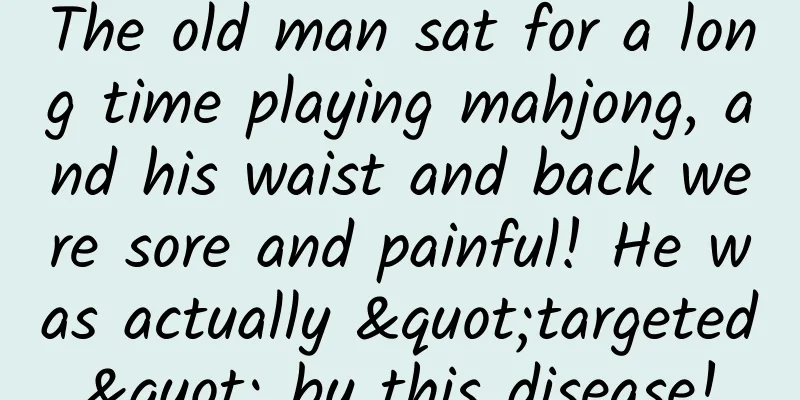What to do if the incision itches after childbirth

|
Postpartum itching of the incision is a very common phenomenon. In such a situation, it is necessary to relieve it. It is normal to itch the incision, and it is very necessary to do some relief work. Many ways can relieve it. It is very good to relieve it to a certain extent, which will be conducive to the recovery and healing of the wound. The healing rate of postpartum incisions is very slow. In this case, the incision will be particularly itchy for a long period of time. It is very important to pay more attention to the changes in your incision and to pay attention to the slightest impact. During such a special period of time, try to avoid the impact of the incision, pay more attention to it, and don't scratch it with your hands. The reason for itching on the incision after cesarean section: Generally speaking, itching on the incision after cesarean section is a normal physiological phenomenon, as new blood vessels and nerves need to grow connective tissue. These new blood vessels and nerves are particularly dense and crowded together. The new nerves are easily stimulated, and because the nerves are very sensitive, they will produce an itchy feeling. Since nerve tissue has poor regeneration ability, generally speaking, when the nerves are about to heal, the wound is also about to heal. As for the itching of cesarean section incision caused by this reason, as long as you can still bear it, generally no special treatment is needed. In particular, you should pay attention to avoid scratching the wound and avoid washing with hot water. This will only aggravate local irritation and cause inflammatory reaction of connective tissue, which will aggravate the itching and even cause infection. If the itching is unbearable, you can gently massage the wound and use some anti-itching drugs at the same time. The hyperplasia period of surgical scars lasts about three months to half a year. The proliferation of fibrous tissue gradually stops and the scars gradually become flatter and softer. The color turns into dark brown, and the scar will become painful and itchy, especially the itching is the most obvious. For some people, the symptoms last for several months to several years after the operation, and sometimes for more than ten years. The wound scars often become itchy, especially when sweating profusely or when the weather changes. The itching is severe, and the scars become more obvious after scratching, but they usually shrink afterwards. In this case, as long as there is no secondary infection, there is no need to go to the hospital for treatment. But if you are a person with a scar-prone constitution, your scars will grow progressively after the operation and form local lumps. At this time, you need to go to the dermatology or plastic surgery department of the hospital for treatment. Methods for dealing with itchy cesarean section wounds: 1. When the cesarean section wound is itchy, be careful not to scratch it, rub it with clothes, or wash the wound with hot water, so as not to aggravate the itching or cause the wound to become infected, thereby delaying wound healing. When the wound itches, you can read a book or do other things to divert your attention. Method 2 for treating itchy cesarean section wounds: A few people’s wounds are obviously itchy due to sweating, weather changes, etc. Under the guidance of a doctor, you can apply anti-inflammatory and anti-allergic ointments, such as dermatitis ointment. Method 3 for dealing with itchy cesarean section wound: Live a regular life, go to bed early, be in a good mood, and exercise moderately. The focus of diet is to eat more fresh vegetables, fruits and mushrooms. Do not eat meat or spicy soup for the time being. Do not eat spicy and irritating food to avoid stimulating scar tissue and causing hyperplasia. As long as you do well, your condition will improve significantly. The above are some methods and ways to deal with itchy incisions. The above methods will reduce the itching to a certain extent. Many methods can be tried to reduce the degree of itching and allow the wound to heal as soon as possible to reach the healthiest level. This can also prevent some postpartum complications related to incisions. Take care of your own health. |
<<: What are the dietary treatments for kidney yang deficiency in women?
>>: What are the sequelae of ectopic pregnancy surgery
Recommend
What causes uterine myositis?
Myometritis is a serious disease for women. When ...
What will help follicle development?
The best childbearing time for women is around 23...
What to do if pregnant women have redness and swelling of the genitals
In life, as long as our body has any abnormal dis...
What to do if the right lateral ventricle of the fetus is wide
Every mother does not like her baby to have any p...
Is it pregnancy?
If a woman feels a pain in her abdomen like being...
What to do if an ovarian cyst is five centimeters
Ovarian cyst is a common gynecological disease am...
Can pregnant women eat konjac tofu?
Tofu is a food that many people love to eat, but ...
What causes tinnitus in women?
If the body's functions are unbalanced, a ser...
How to solve the problem of frequent urination and urgency in women?
Urinary urgency refers to the need to urinate as ...
Why do I have yellow discharge more than 40 days after a caesarean section?
As cesarean section technology becomes more and m...
What causes large blood clots during menstruation?
Many women will find that there are many blood cl...
Is it okay to urinate right after sex?
Everyone has different sexual habits. Some people...
Will the IVF transplant implant on the third day?
In vitro fertilization is the ultimate means of t...
How long after abortion can I use air conditioning?
Pregnant women should try to avoid using central ...
Does eating raw garlic during pregnancy affect the fetus?
During the process of pregnancy, there are many t...









